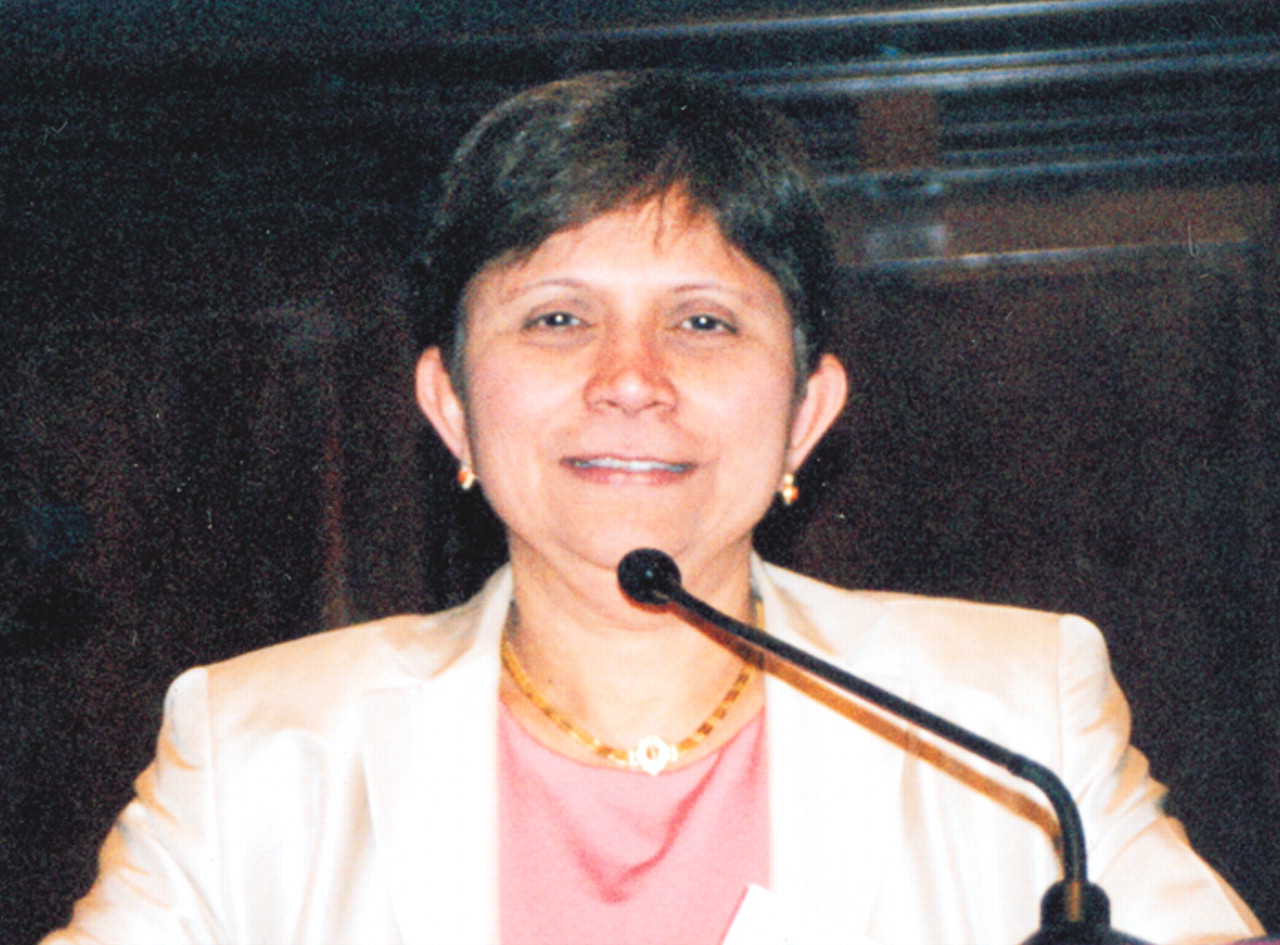`Tremendous Stigma' Keeps Some Asians From MH Care
When people of South-Asian descent begin to experience mental health problems, a psychiatrist or mental health professional is usually among the last ones to whom they will turn for help.

Nalini Juthani, M.D.: Among South-Asian immigrants, “mental illness carries tremendous stigma that prevents patients and families from coming forth for treatment.”
The majority first consult a family member or a religious elder, explained Nalini Juthani, M.D., a professor of clinical psychiatry at the Albert Einstein College of Medicine in New York and an examiner for the American Board of Psychiatry and Neurology.
Juthani, who is also a member of the Psychiatric News Editorial Advisory Board, appeared at the meeting, “Overcoming Stigma in Asian-American Mental Health” in New York in October to discuss issues impacting South Asians who have immigrated to the United States from countries such as India, Pakistan, and Sri Lanka.
“Identification of mental illness in this population is a slow process because their families tolerate, rationalize, and deny distorted thinking, depression, and anxiety,” Juthani explained.
Only when mental health problems significantly interfere with a person's functioning at school or work do they come to the attention of a family member, a trusted elder in the community, or a mental health clinician.
People of South-Asian descent “tend to conceal the pathology and suffer quietly,” Juthani noted.
“Mental illness carries tremendous stigma, which prevents patients and families from coming forward for treatment,” she said.
South Asians living in the United States may cope with their distress by becoming deeply involved in religion, using homeopathic treatments, or Ayurvedic medicine, which Juthani defined as an “ancient Indian science of life that focuses on the balance between mind, body, and spirit.”
Ayurvedic medicine teaches that each person has a certain body type with its own remedies to restore the balance between the three domains, she said.
According to Ayurveda, mental illness falls into two categories.
Nija, or endogenous type, causes symptoms such as inappropriate behavior, anger, excitement, and violence and is usually treated with a variety of Ayurvedic medicines, a restricted diet, massage therapy, and reassurance.
Agantu, the exogenous form of mental illness, is caused by the wrath of gods or ancestors or by possession by various spirits, and it warrants the same treatments used for Nija, Juthani noted.
If the person in distress is Hindu, he or she may believe the symptoms are caused by bad karma from this or a previous life, she explained.
Juthani also addressed the all-important role of family in South-Asian culture and expectations South Asians have of psychiatrists who treat a family member with mental illness.
For instance, psychiatrists should be aware that South-Asian families often do not accept theories relating to the genetic basis of mental illness, Juthani said, because “hereditary aspects of the illness bring shame to the entire family,” and as a result, marriage proposals to the patient's siblings may be jeopardized.
Family members and patients, however, accept a condition that “can be accounted for as short-lived and curable” and expect that the psychiatrist will prescribe medicines to relieve the symptoms of mental illness, Juthani said.
In terms of psychotherapy, short-term cognitive-behavioral therapy is generally better accepted by South-Asian patients and their families than are longer forms of psychotherapy.
Ideally, Juthani noted, psychiatrists and other mental health clinicians should “combine traditional forms of healing such as yoga and meditation with Western modalities of mental health treatment. A clinician's approval of such faith-based practices and willingness to collaborate with spiritual leaders and family members is the best way to achieve a positive outcome,” she said. ▪



